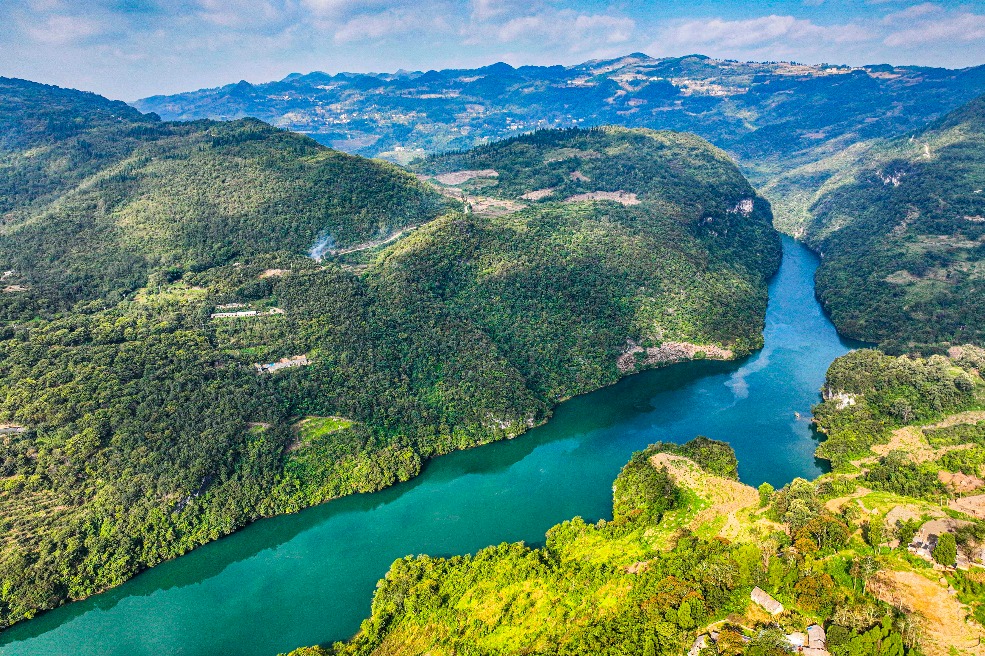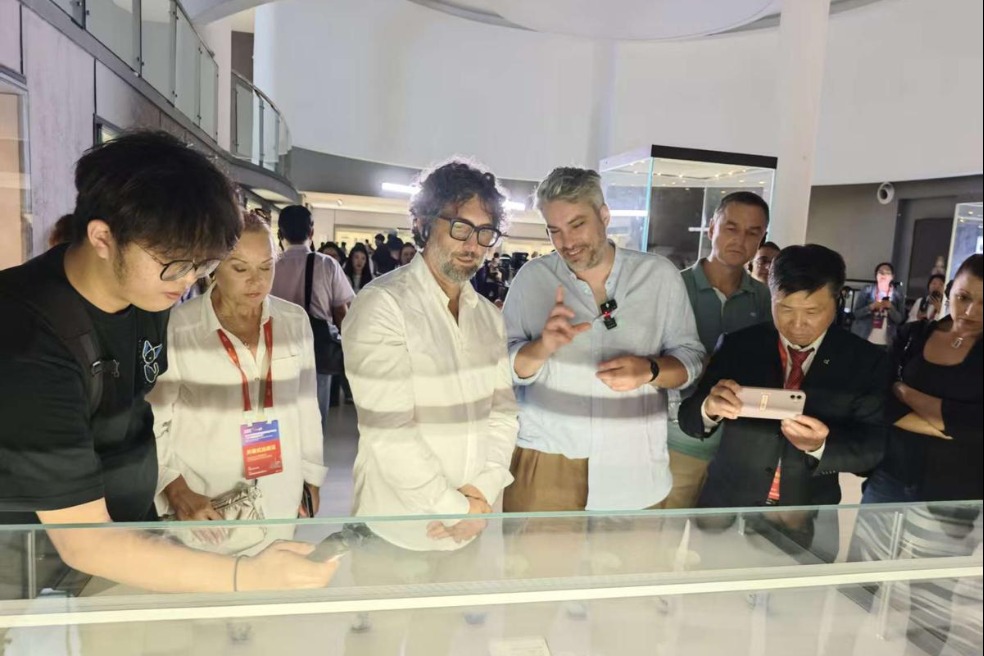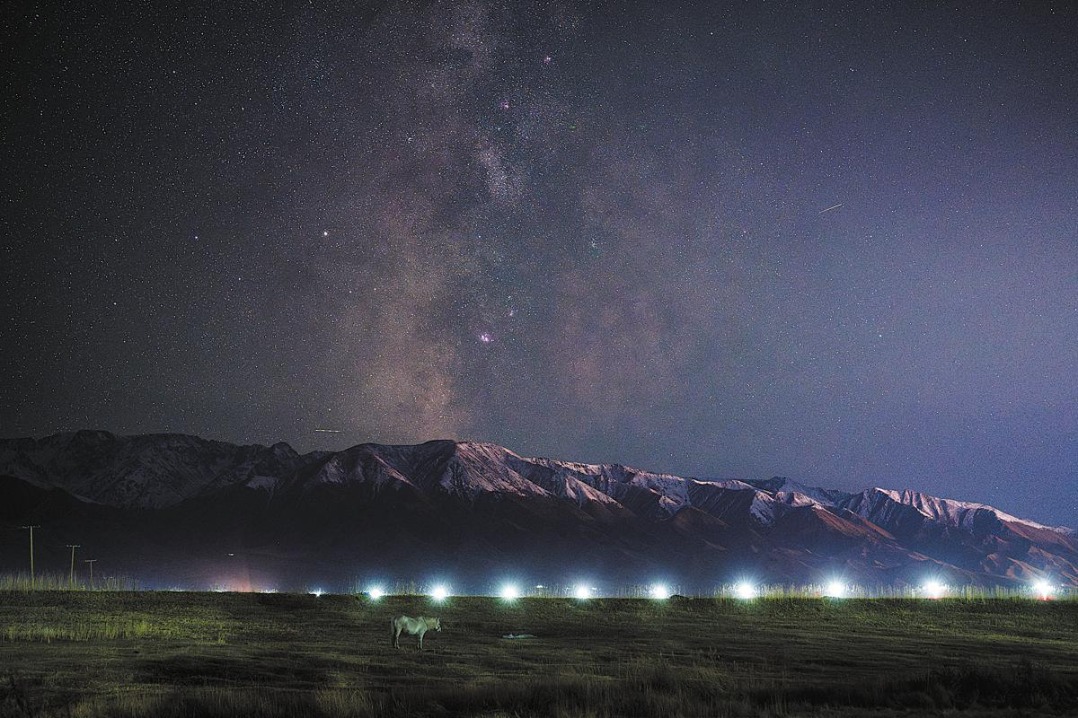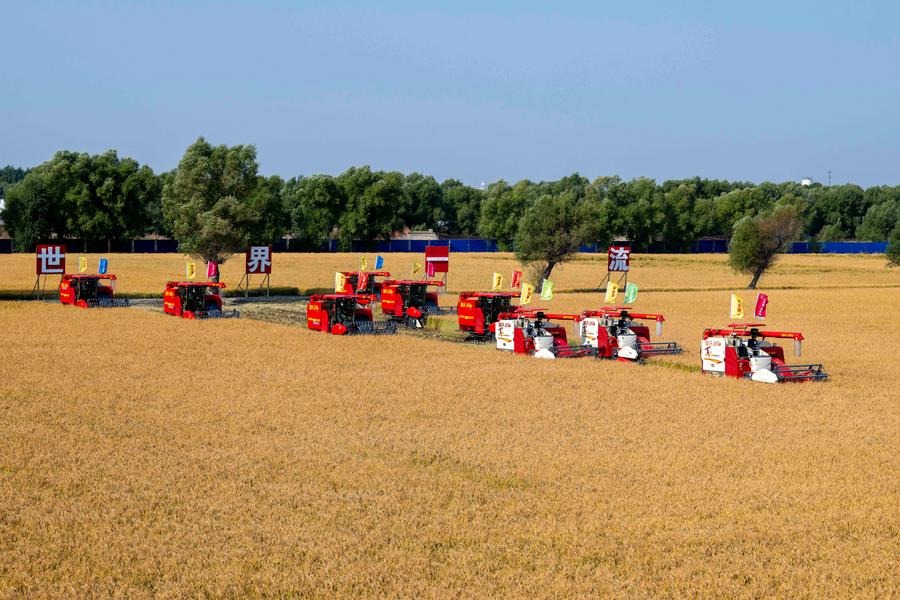Archives confirm war hero's death details

The Heilongjiang Provincial Archives released a historical document on Wednesday that confirms the exact time and place of General Yang Jingyu's death in 1940, Xinhua News Agency reported.
According to the document, Yang died at 4:30 pm on Feb 23,1940, at an altitude of 490 meters, about 5 kilometers southwest of what was then Mengjiang county in Jilin province, now known as Jingyu county.
Yang, born Ma Shangde, was a national hero who led the First Route of the Northeast Anti-Japanese United Army during the Chinese People's War of Resistance Against Japanese Aggression (1931-45).
The document, dated March 16,1940, and titled "Notification from the Suiyang Border Police Unit Regarding the Shooting of Yang Jingyu", states that at 3 pm on Feb 23, four villagers from Baoan village in Mengjiang reported to the Japanese-controlled Mengjiang County Police Station that "a bandit is forcibly demanding food". Based on their description of the man's appearance and clothing, Japanese military police officers suspected it was Yang.
Fifteen of the officers, guided by the villagers, arrived at Baoan at 3:30 pm. At around 4 pm, they found Yang on high ground south of the county at an altitude of 703 meters and pursued him to the Sandaomengjiang River.
According to the record, "at 4:30 pm, near an altitude of 490 meters above sea level, 5 kilometers southwest of Mengjiang county," Yang heroically sacrificed his life. The body was verified on the spot by several of Yang's subordinates and confirmed to be Yang Jingyu."
The document also details what Yang was carrying at the time of his death: one Mauser pistol with 160 bullets, two Colt pistols with 70 bullets, 6,660 Manchukuo yuan, a notebook and a watch.
Zhao Qian, a researcher at the archives who translated the document, said the internal notification, marked "secret", was used by Japanese military police officers to boast of their so-called victory.
"It exposes the brutal nature of the Japanese invasion and corroborates the high status of General Yang Jingyu among the Northeast Anti-Japanese United Army and the people," Zhao said. "His presence terrified the Japanese invaders."
Yun Zhanjun, director of the Editing and Research Department of the Northeast China Revolutionary Martyrs' Memorial Hall in Harbin, Heilongjiang province, explained the approximate purchasing power of the Manchukuo yuan in 1940.
"The price of 50 kilograms of pork was 35 yuan, and 6,660 yuan could buy a lot of things," Yun said. "Yang's unwillingness to abandon his valuable weapons and funds until death shows his strong will to fight for the long term."
After Yang's death, the Japanese dissected his body, finding only undigested blades of grass, cotton batting and tree bark in his stomach, but not a single grain of rice. He had gone five days without food before his death.
In 1946, Mengjiang was renamed Jingyu in his memory.
zhouhuiying@chinadaily.com.cn
- New international body for mediation formed in Hong Kong
- Bogota to present Shanghai Award, a first for South America
- Chinese researchers make breakthrough in scanning the universe
- Aerial photos reveal Guizhou's dramatic karst landscape
- Guizhou's Huanggang village named on UN Best Tourism Village list
- Gansu's first captive-born panda cub turns one month old




































